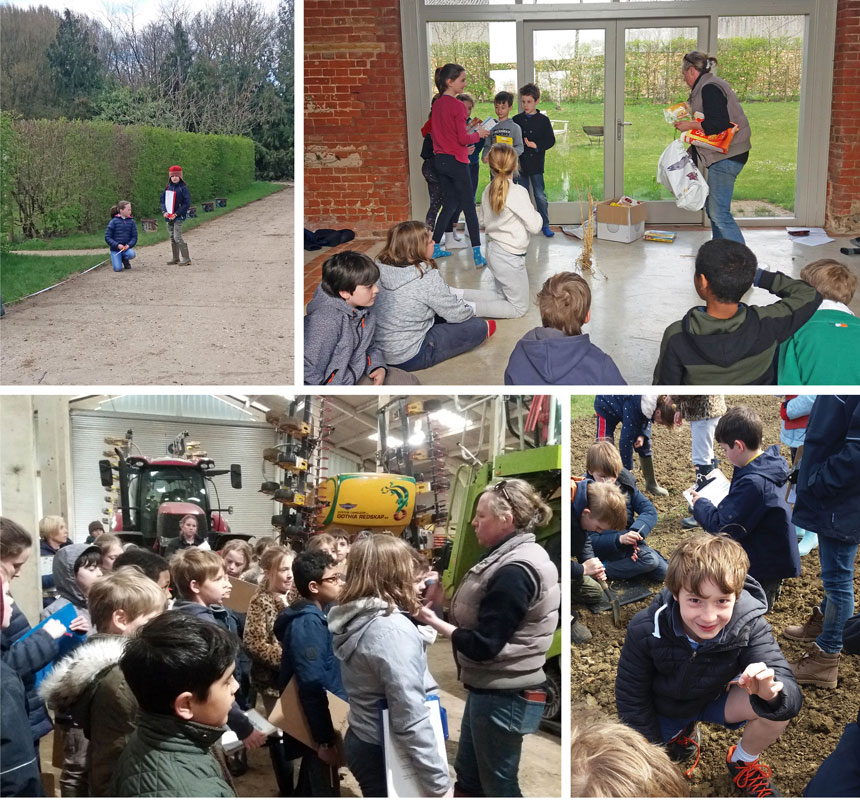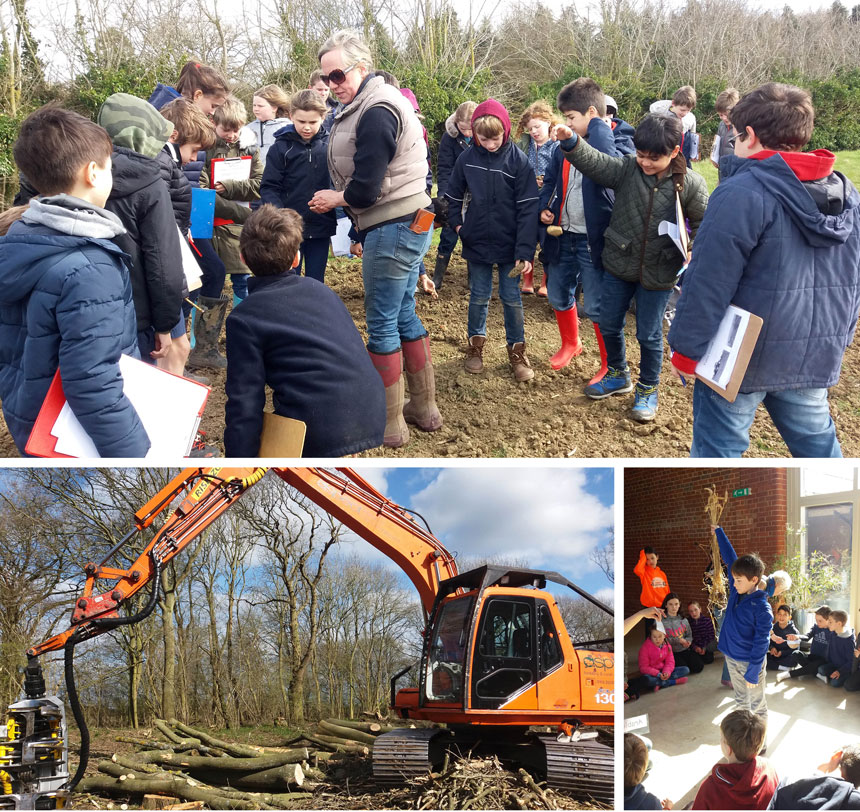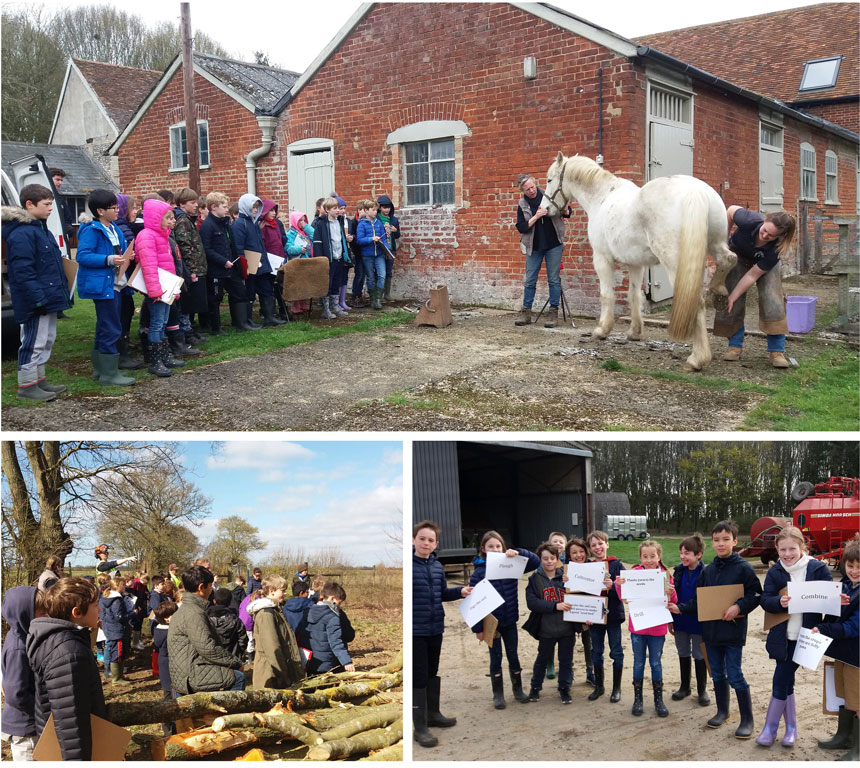Form 3 visited Shimpling Park Farm in Suffolk, which has been shortlisted for Bayer award for exceptional farm visits and accredited by the Countryside Educational Visits Accreditation Scheme (CEVAS), to get an invaluable insight into the countryside, the business of organic farming and the fun of learning outside the classroom. Time on the farm reinforced aspects of the children’s curriculum from maths to science to PHSEE. Head of Geography Miss Grant, described the trip as, “An excellent way of linking food to farming and for the children to learn specifically about wheat as a case study. It also enabled them to get a sense of place and to explore a working farm and link to the work in Geography lessons.”

Form 3 learnt about the different aspects of each job on the farm and how the business generates a profit. They looked closely at wheatears and wheat seeds and thought about the months and the growing year and what the farm might be doing in March. One child said, “It was amazing to realise that one little seed can grow into massive wheat plants.” Another commented, “We saw porridge oats being put into a truck, ready to be transported to Northern Ireland and you realise there are so many stages from seed to distribution to seeing oats in your cereal bowl.” Another consideration was thinking about the process of planning each month in simple terms and understanding the difference between a conventional versus an organic farm.

One of the highlights was touring the farm and seeing the grain store, as well as the farm machinery on the farmyard tour and considering the dangers involved with each machine and farm implement. “We saw farm machines that fold up so they can go on roads. Standing next to the combine harvester was quite intimidating.” The children also used trundle wheels to measure parts of the farm, visited a newly-planted field, learnt about the lambing process and saw one of the farmers cleaning horse’s hooves. “We looked at good soil and we found out that there were microscopic animals eating up all the not so good soil so that the new and fresh soil could grow the plants quicker.” The children also had the chance to see coppicing in action and to discuss wood as a fuel source and see the renewable fuel bio mass boiler.
